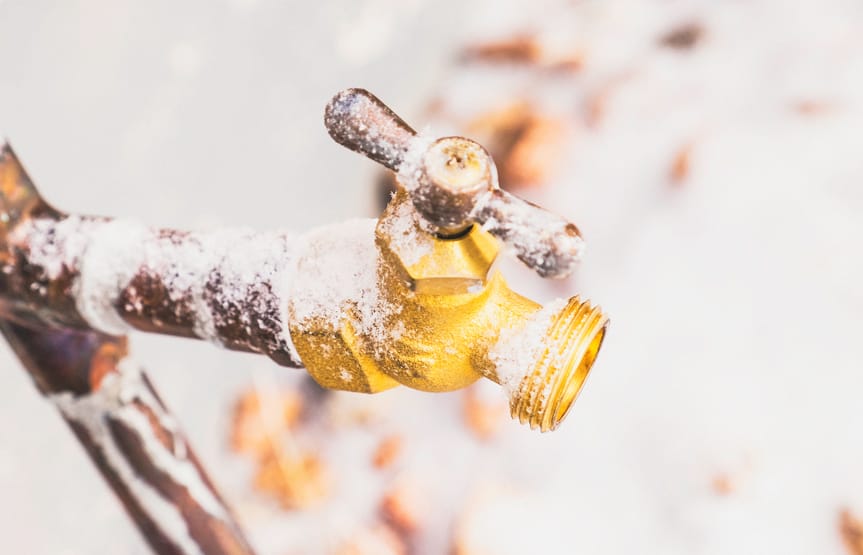How to Winterize Exterior Water Faucets
In many cases smart homeowners take a good amount of time to keep their pipes from freezing around the cold winter months, however many of them seem to forget that water faucets are also vulnerable to the cold. A small crack can quickly turn into something completely horrible as water expands due to freezing, resulting in a huge loss of water each day. The costs will not only affect your repair bill, but also your water bill as well so make sure you fix the issue as soon as possible.
Steps to Winterize Water Faucets
If you want to winterize your water faucets you should really take the time to do it right. This will help you to save yourself the pain later. Follow these tips to winterize:
• Turn off the faucets by closing them until they can’t tighten anymore. This will help keep the water from expanding if the weather gets really cold. Find the main shut-off valve for the faucets outside and cut their water supply by closing it as well.
• Drain the valves inside by placing a bucket or a bowl under the inside valves. Then open their drain plug and let the water flow out until they are empty. Replace their drain plugs and close them again.
• Get outside and remove the hoses attached to the faucets and store them somewhere safe and out of sight.
• You can prevent the freezing of faucets by checking out the local hardware store. Buy a set of faucet covers for your outside faucets and install them. They will fit properly and will protect them from the cold. Follow whatever instructions of domestic cleaning Westminster were part of the package and install them so you won’t have any trouble with the water remaining in the valves.
• Keep in mind that winterizing the faucets will cost you a whole lot less than taking care of the aftermath of a burst and leak. It’s in your best interest do your best to keep water faucets safe.
• Sometimes you may find that despite the best of efforts you’ve put into winterizing a faucet, sometimes they may freeze. If you want to thaw frozen pipes you can use a hair dryer or a heat lamp near them or even an electric heating pad. Space heaters can also work as long as they are pointed at the pipe. You should make sure you never use blowtorches or other flaming tools. This may cause a rapid expansion of water inside, thus leading to an equally rapid damage to it as well.

